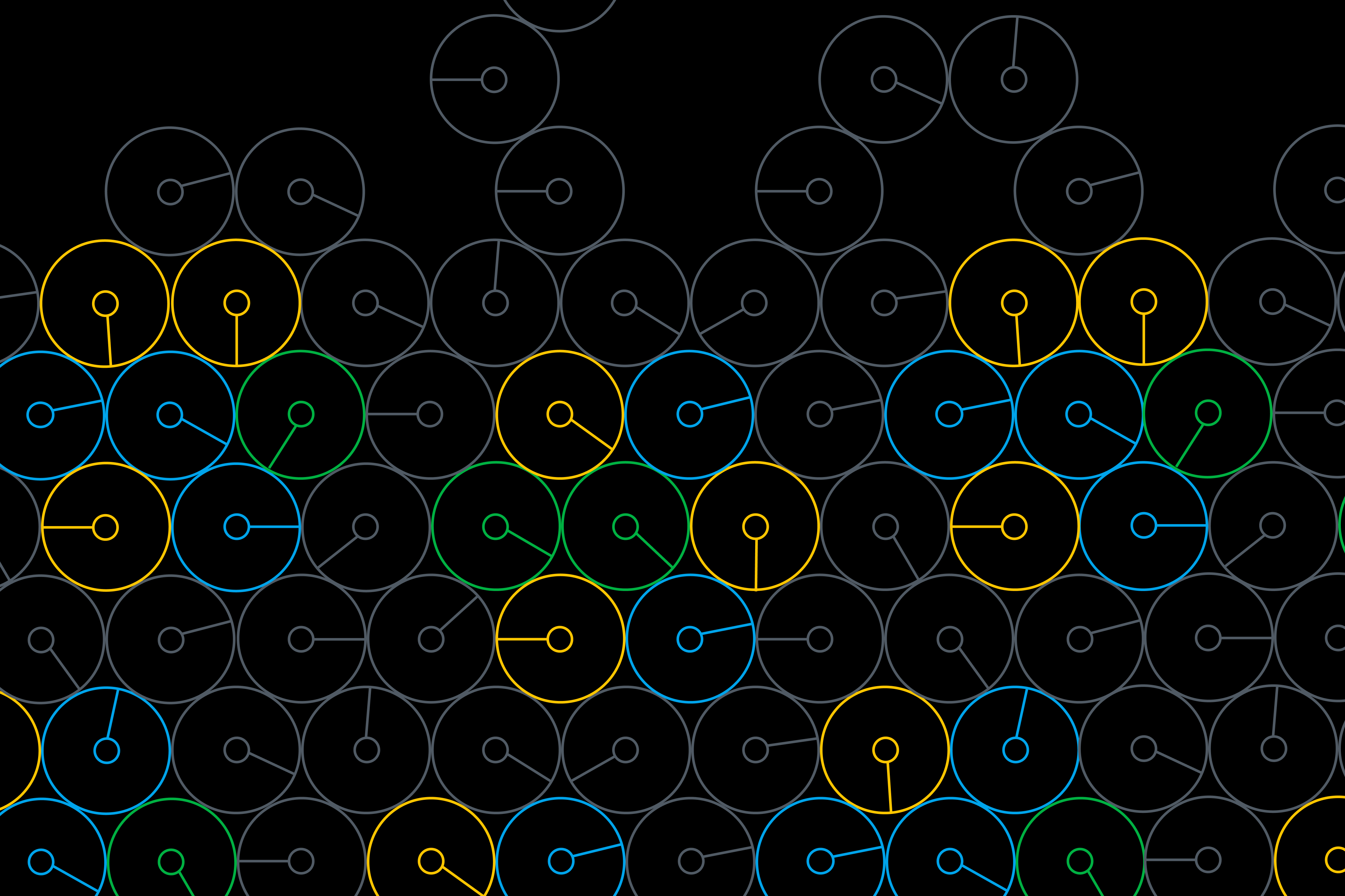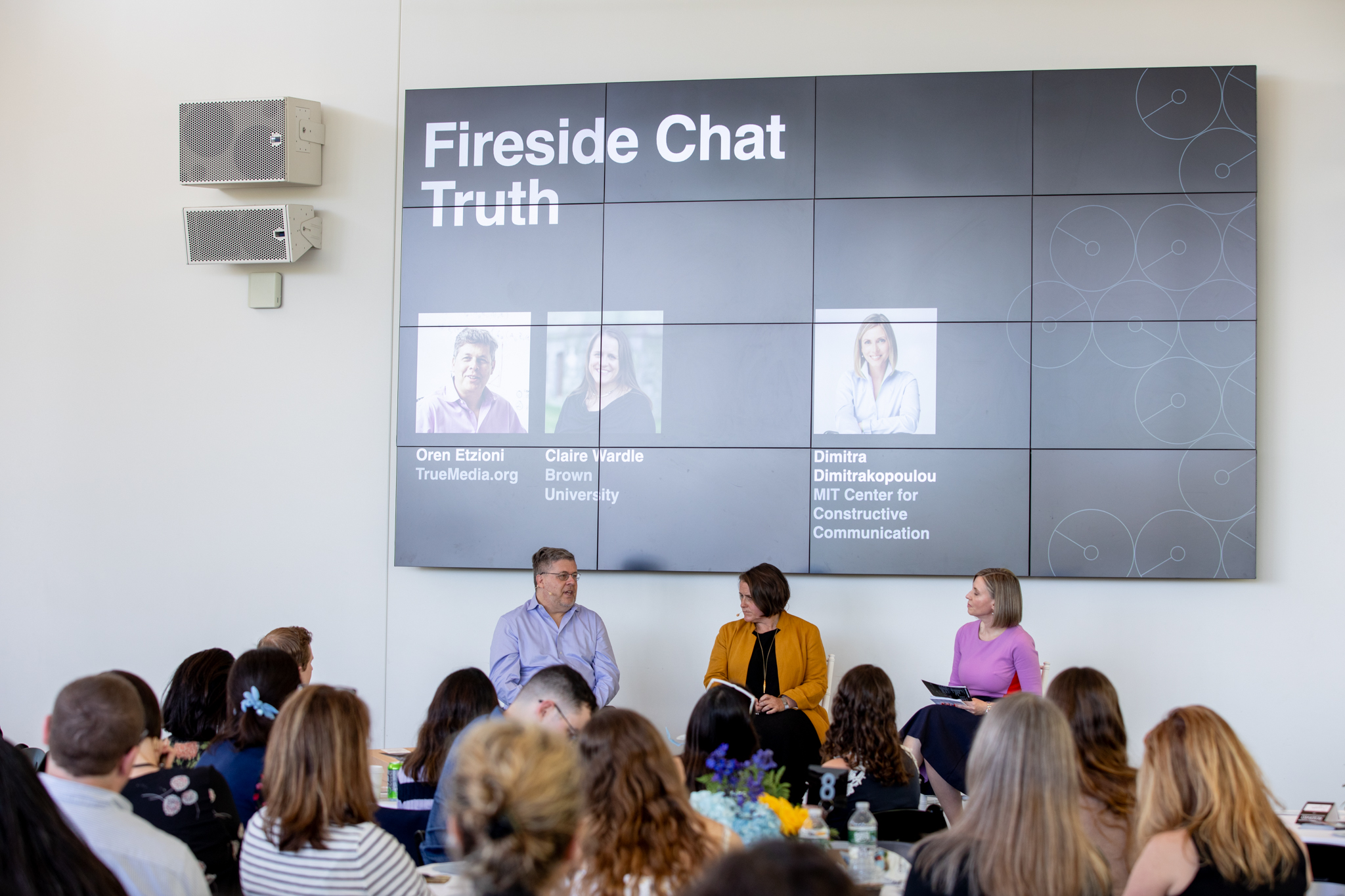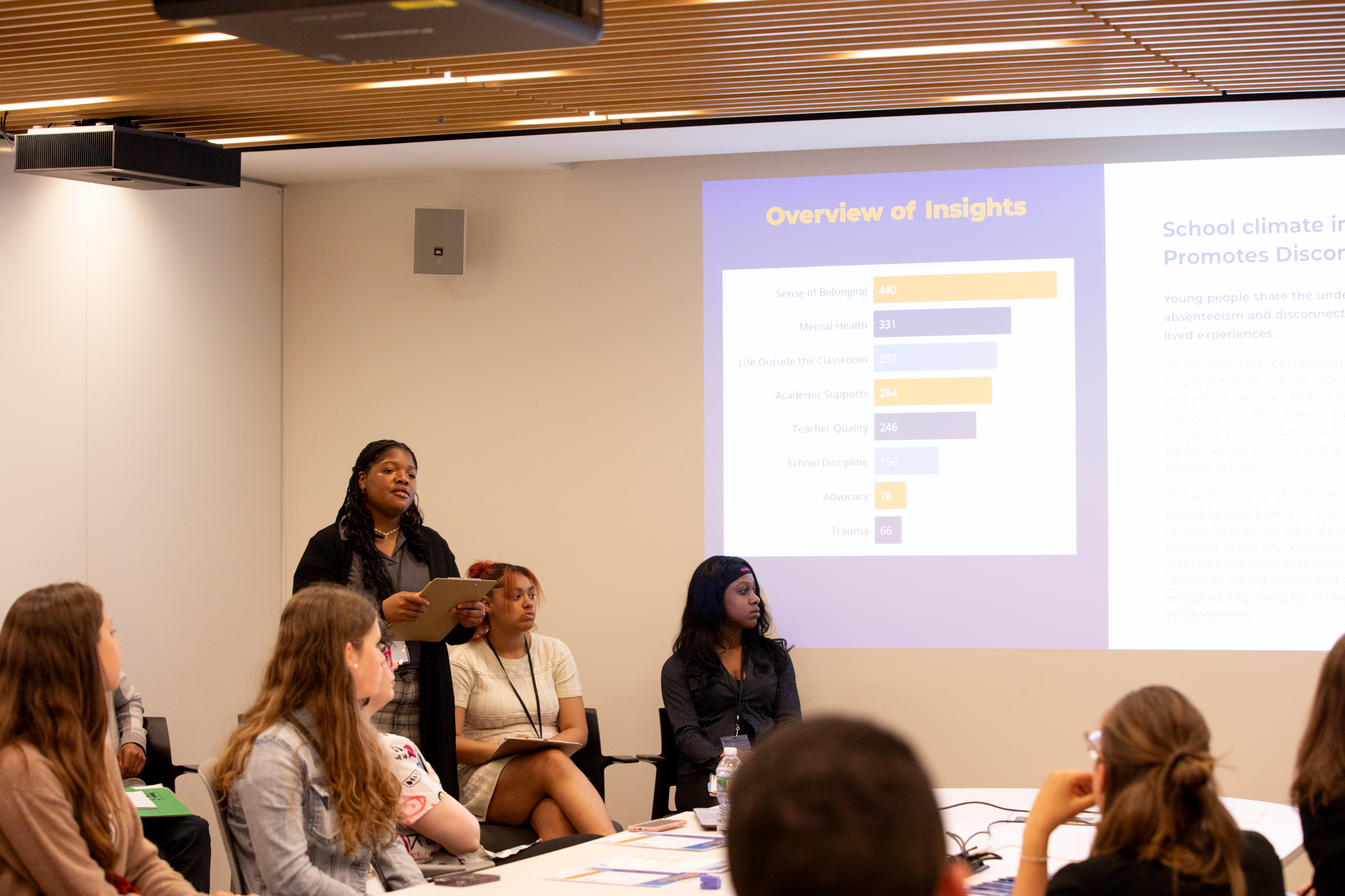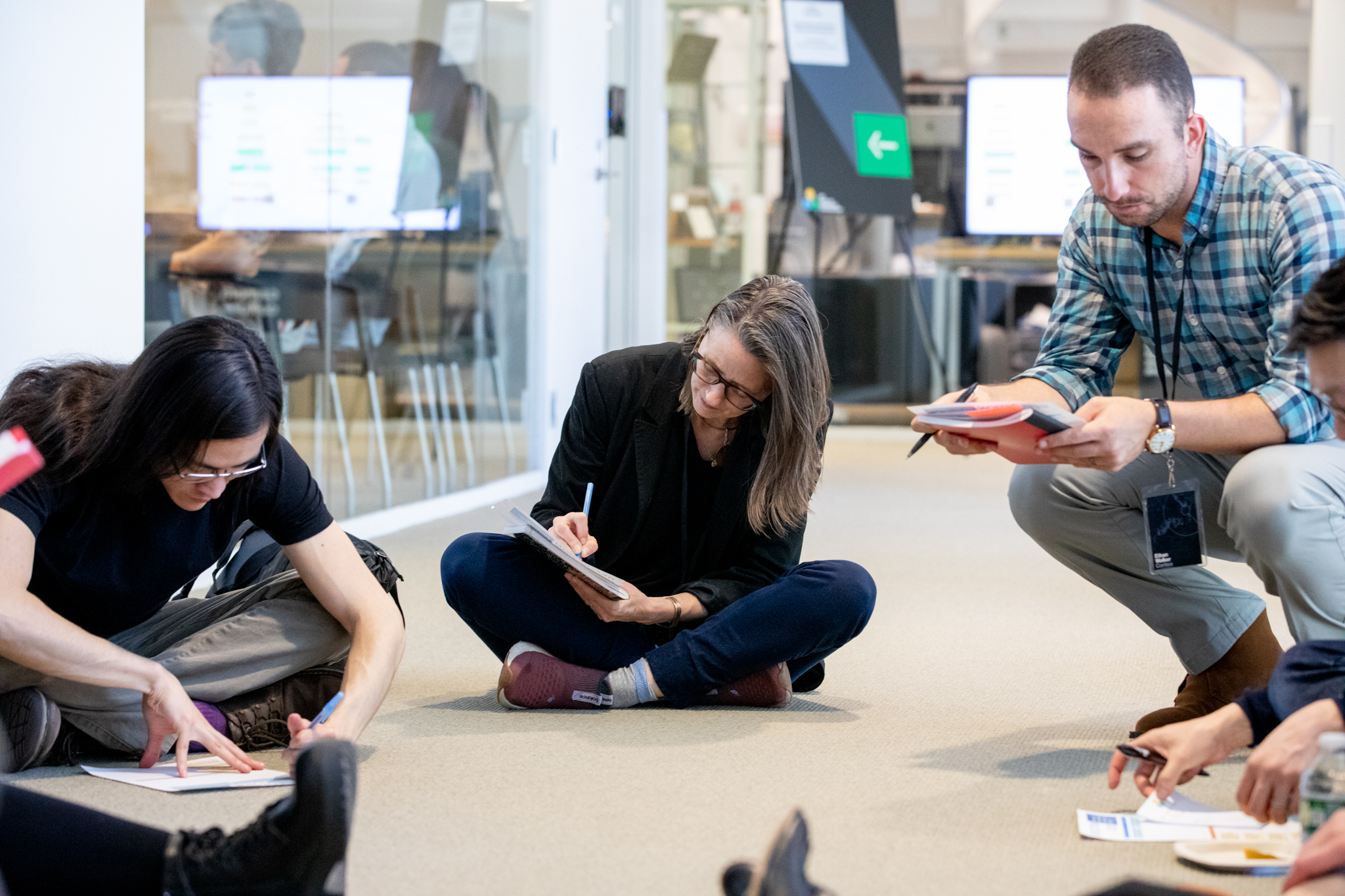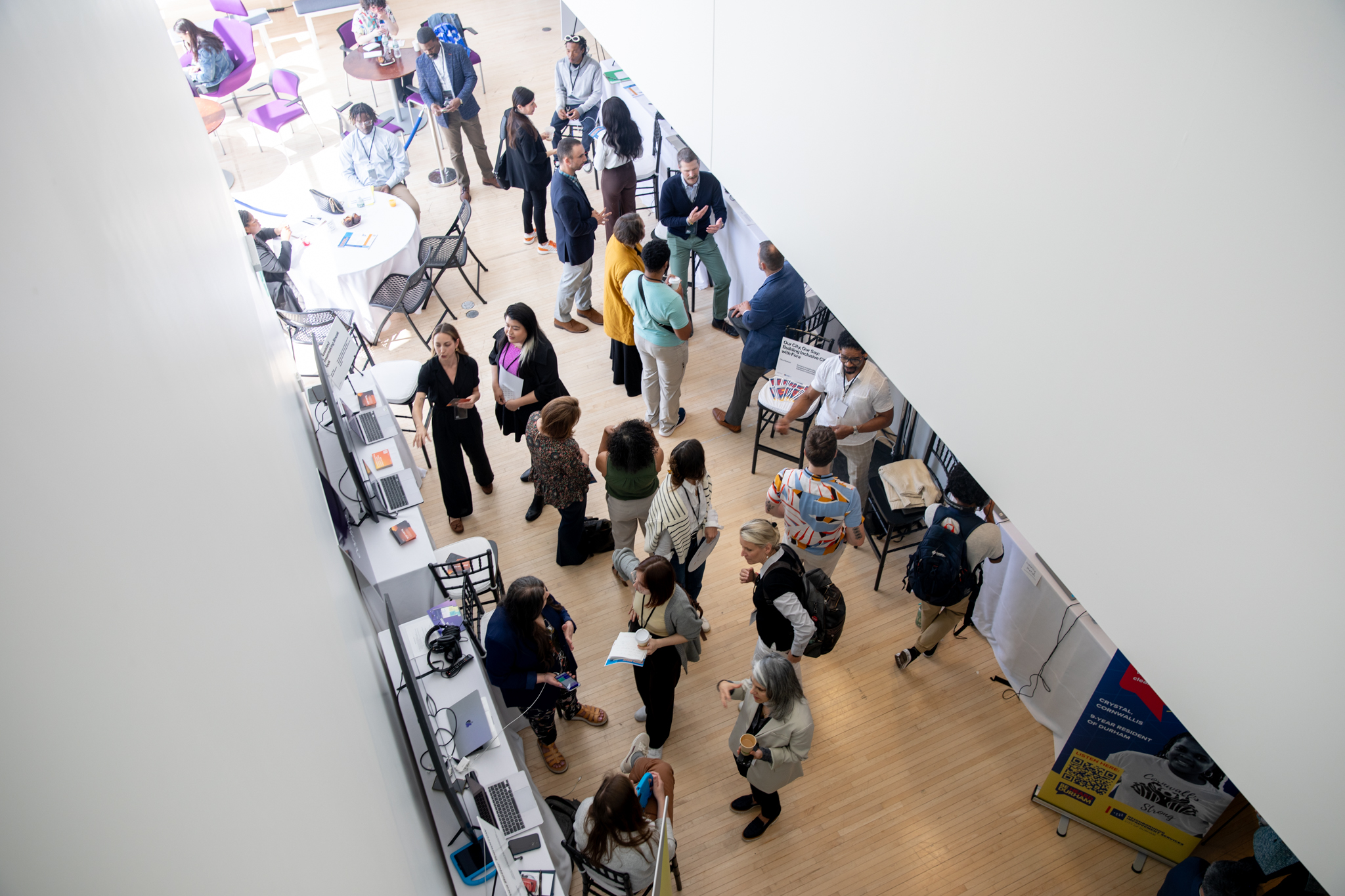Overview
Over the course of the day, attendees:
- heard from experts on the challenges and opportunities for generative AI; the hurdles facing preservation of our democracy; and a new platform that scales dialogue with technology
- learned about a campus-wide MIT facilitated-dialogue initiative to address tension and distrust
- experienced real talk and real listening insights through analysis of your pre-recorded conversations
- explored interactive demos and high-impact field work during a research open house
Highlights included conversations with:
- Martha Minow, Professor, Harvard Law School
- Oren Etzioni, Founder of TrueMedia.org, Founding Chief Executive Officer at the Allen Institute for AI (AI2), and Professor Emeritus at the University of Washington
- Robert Clark, Founder and CEO, Newark Opportunity Youth Network
- Melody Barnes, Executive Director, University of Virginia Karsh Institute of Democracy
- Kathy Cramer, Professor, University of Wisconsin-Madison
- Claire Wardle, Professor, Brown University
We know the challenges we are currently facing are significant, yet we remain energized that we can–and will–make a difference.
Questions? Send email to deb-roy-cccevent@media.mit.edu.
Recordings
All recordings can be viewed in this playlist.
Agenda
May 7, 2024
8:00 AM
Continental Breakfast
9:00 AM
Welcome: Deb Roy
9:15 AM
Conversation with Martha Minow and Melody Barnes, Moderated by Andrew Heyward
10:00 AM
State of the Network: Deb Roy
10:30 AM
Open House Interactive demos by CCC researchers, Cortico and Cortico partners
12:30 PM
Lunch + Analogia
1:30 PM
Conversation with Oren Etzioni and Claire Wardle, Moderated by Dimitra Dimitrakopoulou
2:30 PM
Workshops I
Dialogue, listening, and human connection in the age of social media
Moderated by Kathy Cramer, University of Wisconsin-Madison & MIT Center for Constructive Communication
Opportunities and threats to democracy in the age of AI
Moderated by Deb Roy, MIT Center for Constructive Communication
Youth voices, youth leadership: Bringing young people into decision-making
Moderated by Alex Kelly Berman & Hana Carey, Cortico
4:00 PM
Break
4:15 PM
Workshops II
Tech-enhanced Citizens’ Assemblies: A new paradigm of citizen-led democracy
Moderated by Dimitra Dimitrakopoulou, MIT Center for Constructive Communication
Truth, trust, and media ecosystems in an AI-driven world
Moderated by Andrew Heyward, MIT Center for Constructive Communication
Workplaces as Listening Organizations
Moderated by Russell Stevens, MIT Center for Constructive Communication
5:30 PM
Conversation with Kathy Cramer and Robert Clark, Moderated by Deb Roy
6:00 PM
Reception
Workshops
Session 1
Dialogue, listening, and human connection in the age of social media
Moderated by Kathy Cramer, University of Wisconsin-Madison & MIT Center for Constructive Communication
In an era where AI-fueled social media and related technologies are increasingly becoming integral to our daily lives, human connection, dialogue, and listening face new challenges and possibilities. In this workshop, we’ll explore the profound impact of technology on the ways we listen, communicate, and connect with each other. Amidst the complexities of our technology-infused reality, there’s an urgent need to rethink how we engage in dialogue and practice listening to foster deep and authentic human connections. During the workshop, participants will be invited to share their personal experiences related to trust, connection, and empathy within the context of our tech-driven reality to imagine how social dialogue networks can serve as tools for building bridges rather than barriers.
Opportunities and threats to democracy in the age of AI
Moderated by Deb Roy, MIT Center for Constructive Communication
The potential impact of AI on fundamental aspects of democracy – self-governance, individual freedom, fairness, and the rule of law – appears to be a mix of good and bad. AI could be leveraged to assist people in lifting voices, becoming more informed citizens, strengthening communities, and bridging divides. Yet generative AI could also disrupt trustworthy channels for public input to law and policy makers, become a conduit for biases and falsehoods, and erode societal and institutional trust. Join us in exploring the complex interplay of AI and democratic processes as we work to expand our collective imagination of the changes afoot, and identify pathways to encouraging the good and guard against the bad.
Youth voices, youth leadership: Bringing young people into decision-making
Moderated by Alex Kelly Berman & Hana Carey, Cortico
Join us for a dynamic and interactive workshop where we delve into the findings from Opportunity Youth Network’s Youth Policy Advisory Board project, “Youth Speak for Themselves: Revolutionizing the Quality of Education in Newark.” This workshop, led by young leaders from the Youth Policy and Advisory Board, offers a unique opportunity to learn, analyze, and reflect on the insights gathered from their conversations with over 170 young people in Newark, NJ. During the workshop, participants will learn more about the potential impact of youth leadership, and why incorporating youth voice is important. We will also work in small groups, to identify how your own work could incorporate youth voice, and walk away with at least one concrete action step to integrate it into your current or future projects.
Session 2
Tech-enhanced Citizens’ Assemblies: A new paradigm of citizen-led democracy
Moderated by Dimitra Dimitrakopoulou, MIT Center for Constructive Communication
This workshop explores how democracy can be renewed beyond elections with governance innovations that shift who has power and how decisions are taken. One of the most promising ways in which this is happening around the world is through deliberative bodies such as Citizens’ Assemblies. These assemblies bring together diverse and broadly representative groups of people selected by sortition (lottery) for extended periods of time, creating the epistemic conditions to consider complex policy and political issues, and to find high thresholds of common ground on shared recommendations. In this workshop, we’ll explore the potential of Citizens’ Assemblies as defining institutions of a new democratic paradigm, how technology can enhance their quality, trustworthiness, and scalability, the latest trend of institutionalization, and whether a next ‘deliberative wave’ is one where Citizens’ Assemblies gain decision-making authority.
Truth, trust, and media ecosystems in an AI-driven world
Moderated by Andrew Heyward, MIT Center for Constructive Communication
How do you know what to believe when you read or watch the news? American journalism already struggles with a crisis of trust, and the rapid growth of AI is likely to exacerbate the problem. A Gallup poll found last fall that 39% of respondents have no confidence – “none at all” – in the news media. That’s a historic high and a profound threat to a healthy democracy.
Generative AI’s ability to produce misinformation and disinformation at unheard-of scale, increasingly including audio and video, threatens to shake whatever trust remains in reliable reporting. News organizations and their audiences have a shared interest in understanding AI’s role in a changing media ecosystem: identifying the dangers it poses and harnessing its power to strengthen trust in reliable information rather than shredding confidence altogether.
Join news leaders and experts on AI and the information wars as we explore these issues in an interactive workshop that will not just assess the threat but identify some prospective responses.
Workplaces as listening organizations
Moderated by Russell Stevens, MIT Center for Constructive Communication
Join us in exploring the idea of transforming workplaces into environments where active listening is at the core of their culture. We will explore best practices, strategies, and technologies that can help organizations better listen to and engage with their employees, stakeholders, and wider communities. With a mission to become listening organizations, workplaces can foster the power of listening in creating more resilient and connected spaces as well as pave the way for demonstrable listening and responsive decision making. This, in turn, creates a more open, respectful, and supportive work environment, where every voice is heard and valued and organizations become more adaptable, innovative, and, ultimately, more successful in fostering diversity, equity, inclusion, and belonging.
Speakers

Martha Minow
Legal scholar Martha Minow is 300th Anniversary University Professor and former dean at the Harvard Law School. She is an expert in human rights and advocacy law for members of racial and religious minorities, as well as for women, children, and persons with disabilities. A mentor for many Harvard Law School students over the years, including Barack Obama, she writes and teaches about constitutional law, fairness and privacy, digital communications, democracy, privatization, military justice, and ethnic and religious conflict. Minow has served on the Center for Strategic and International Studies Commission on Countering Violent Extremism and on the Independent International Commission Kosovo. She helped to launch Imagine Co-existence, a program of the U.N. High Commissioner for Refugees, to promote peaceful development in post-conflict societies. Prior to joining the Harvard Law School faculty, she clerked for Supreme Court Justice Thurgood Marshall. Her many honors include the Sargent Shriver Equal Justice Award (2016); nine honorary degrees (in law, education, and humane letters); the Gold Medal for Outstanding Contribution to Public Discourse, awarded by the College Historical Society of Trinity College, Dublin; the Holocaust Center Award; and the Sacks-Freund Teaching Award, awarded by the Harvard Law School graduating class. Minow is author and editor of many scholarly articles and books, including In Brown’s Wake: Legacies of America’s Constitutional Landmark (2010) and Saving the News: Why the Constitution Calls for Government Action to Preserve Freedom of Speech (2021).
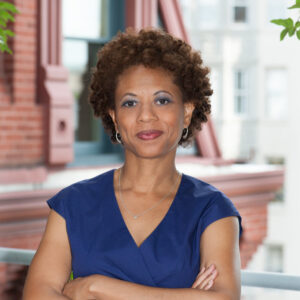 ‘
‘
Melody Barnes
As the founding executive director of the University of Virginia’s Karsh Institute of Democracy, Melody Barnes guides the organization on an action-oriented path to realizing democracy in both principle and practice.
Barnes is a dedicated public servant with more than 25 years of experience crafting public policy. She served in the administration of President Barack Obama as assistant to the president and director of the White House Domestic Policy Council. Earlier in her career, Barnes was executive vice president for policy at the Center for American Progress and chief counsel to the late Senator Ted Kennedy on the U.S. Senate Judiciary Committee. Barnes started her career in New York as an associate at Shearman & Sterling.
Barnes earned her BA from the University of North Carolina at Chapel Hill, where she graduated with honors in history, and her JD from the University of Michigan. In addition to her role at the Karsh Institute, Barnes is the J. Wilson Newman Professor of Governance at UVA’s Miller Center of Public Affairs, a distinguished fellow at UVA’s School of Law, and co-founder of the domestic-policy strategy firm MB2 Solutions. She serves on the boards of directors of several corporate, non-profit, and philanthropic organizations.
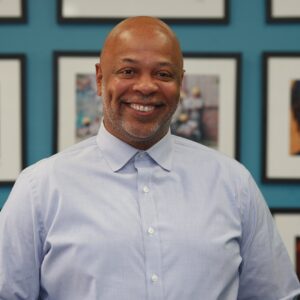
Robert Clark
Robert Clark has spent more than 25 years in the youth workforce development space, not only as a founder and advocate, but also as a product of these impactful programs. As a YouthBuild Boston graduate, Clark was the first YouthBuild graduate to launch a YouthBuild program in a major city — Newark, New Jersey. He’s spent his career advocating for juvenile justice reform, re-entry programming, and vocational training for youths. In 2016, Clark founded the Newark Opportunity Youth Network (NOYN), New Jersey’s leading advocate of opportunity youth with a body of replicable initiatives designed to address youth disconnection, including a LEAD Charter School, YouthBuild Newark, My Brother’s Keeper Newark, and the Newark Youth Workforce Collaborative. His commitment to young people has shaped his service as a founding member of My Brother’s Keeper Newark’s Advisory Council and as a board member of the Newark Trust for Education and the Newark Workforce Development Board. Clark is a Boston native and holds a bachelor’s degree focused on adult training in human services from the University of Massachusetts.
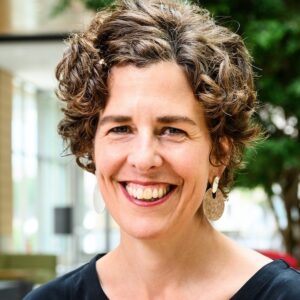
Katherine Cramer
Katherine Cramer is a professor of political science and the Natalie C. Holton Chair of Letters & Science and the Virginia Sapiro Professor of Political Science at the University of Wisconsin-Madison and director of the Morgridge Center for Public Service. She is also a visiting professor at the MIT Center for Constructive Communication. Her work focuses on the way people in the United States make sense of politics and their place in it, and is known for her innovative approach to the study of public opinion in which she uses methods such as inviting herself into the conversations of groups of people to better understand their connections to each other and to their government. Her award-winning book, The Politics of Resentment: Rural Consciousness in Wisconsin and the Rise of Scott Walker, brought to light rural resentment toward cities and its implications for contemporary politics, and was a go-to source for understanding voter patterns in the 2016 presidential election (University of Chicago Press, 2016).

Oren Etzioni
Dr. Oren Etzioni is the founder of TrueMedia.org, a nonprofit fighting political deepfakes. He was the Founding Chief Executive Officer at the Allen Institute for AI (AI2), having served as CEO from its inception in 2013 until late 2022. He is Professor Emeritus at the University of Washington where he helped to pioneer meta-search, online comparison shopping, machine reading, and open information extraction. He has authored several award-winning technical papers, achieving an H-index of 100 (100 technical papers each cited over 100 times). Finally, he is a technical director of the AI2 Incubator and a Venture Partner at Madrona. He has founded several companies including Farecast (acquired by Microsoft).

Claire Wardle
Claire Wardle is co-founder and co-director of the Information Futures Lab, and Professor of the Practice at the Brown School of Public Health. She is considered a leader in the field of misinformation, verification and user generated content, co-authoring the foundational report, Information Disorder: An interdisciplinary Framework for Research and Policy for the Council of Europe. In 2015, Claire co-founded the non-profit First Draft, a pioneer in innovation, research and practice in the field of misinformation. Over the past decade she has developed an organization-wide training program for the BBC on eyewitness media, verification and misinformation, led social media policy at UNHCR, been a Fellow at the Shorenstein Center for Media, Politics and Public Policy at Harvard’s Kennedy School, and been the Research Director at the Tow Center for Digital Journalism at Columbia University’s Graduate School of Journalism. She holds a Ph.D. in Communication from the University of Pennsylvania.
